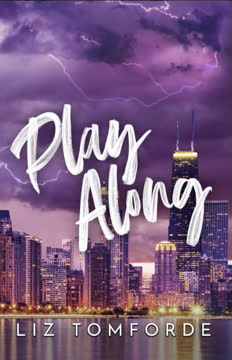Plot Summary
Lightning Letters Begin
Naomi, a bright, weather-obsessed girl from Oklahoma, is assigned a pen pal in California named Luca. Her first letter is warm and eager, but Luca's reply is shockingly mean, mocking her and her home. Naomi is hurt but refuses to back down, and soon their correspondence becomes a battle of wits and insults. What starts as a school project quickly turns into a years-long exchange of increasingly creative, biting letters. The emotional charge is immediate: Naomi's disappointment, Luca's defensive bravado, and the thrill of a new, strange connection.
Penemies in the Making
As the letters continue, Naomi and Luca's exchanges grow sharper and more personal. Each tries to outdo the other in meanness, but beneath the surface, a strange bond forms. Their teachers and families remain oblivious, and the letters become a secret world where they can vent frustrations and test boundaries. The emotional arc shifts from initial hurt to anticipation—each looks forward to the next letter, even as they pretend to hate the sender. The rivalry becomes addictive, and the "penemy" relationship is born.
The Art of Insult
By middle school, the insults have become an art form. Naomi and Luca compete to see who can be more outrageous, sometimes veering into the absurd or grotesque. Their letters are filled with dark humor, creative curses, and the occasional accidental vulnerability. The emotional stakes rise as the letters become a way to process real-life pain—family troubles, loneliness, and the awkwardness of growing up. The game of one-upmanship is both a shield and a lifeline.
Growing Up, Growing Meaner
As they enter high school, the tone of the letters shifts. The insults are still there, but now there's a flirtatious edge, and the emotional stakes are higher. Both have relationships, heartbreaks, and family upheavals. Luca's parents divorce, and his mother's illness casts a shadow over his life. Naomi faces her own challenges. The letters become a place to process pain, even as they hide their true feelings behind sarcasm. The emotional arc is bittersweet—connection through cruelty, comfort in competition.
Letters Through Life's Storms
Luca's mother dies, and he joins the military, while Naomi heads to college. Their letters become less frequent but more meaningful. They share their darkest thoughts, sometimes lashing out, sometimes reaching for comfort. Both wonder if the other is the only person who truly understands them. The emotional arc is one of grief, longing, and the ache of missed opportunities. The letters are a lifeline, but also a reminder of what they're missing in real life.
Missed Connections, Lost Addresses
As adulthood arrives, life pulls them in different directions. Luca gets engaged to Penny, a relationship that feels more like inertia than love. Naomi moves for her career. Letters are lost to wrong addresses, and misunderstandings pile up. Each believes the other has moved on. The emotional arc is one of frustration and regret—so many years of connection, now threatened by silence and circumstance.
The Search for Luca
When a new, anonymous hate letter arrives at Naomi's workplace, she knows it's from Luca. The thrill of the old rivalry returns, but there's no return address. With the help of her friend Anne, Naomi embarks on a quest to track Luca down, using every tool at her disposal—social media, people-finder sites, and old addresses. The emotional arc is one of determination and hope, tinged with the fear that she's chasing a ghost.
Digital Dead Ends
Naomi's attempts to find Luca online are stymied by deactivated profiles and dead ends. She tries old addresses, but they lead nowhere. The emotional arc is one of mounting obsession and desperation. The search becomes a way to process her own feelings—about Luca, about herself, and about the strange, enduring power of their connection.
Flights and False Leads
Naomi and Anne travel to San Diego, Georgia, and Dallas, chasing every possible lead. Each trip brings new revelations—about Luca's family, his failed engagement, and the pain he's carried. They meet neighbors, ex-fiancées, and old friends, piecing together Luca's story. The emotional arc is one of exhaustion and hope, as Naomi realizes she's not just searching for Luca, but for closure and understanding.
The Truth About Pickles
Back in Miami, Naomi discovers that her building's security guard, Joel, is Luca's estranged father. Joel has been acting as a go-between, delivering letters between them. The revelation is both shocking and oddly fitting—another twist in their long, convoluted story. The emotional arc is one of betrayal and relief; the truth is finally within reach, but it comes with new complications.
The Green Dress Gambit
Desperate to communicate, Naomi wears a green dress on air, making herself a floating head on the weather report—a signal to Luca. The stunt goes viral, and Luca responds with a letter. Their communication becomes a game of public and private signals, each daring the other to take the next step. The emotional arc is playful, risky, and charged with anticipation.
Letters Without Stamps
Naomi and Luca begin leaving letters for each other in their building, bypassing the mail entirely. The letters become more honest, more vulnerable, and more flirtatious. Both are dating other people, but the pull between them is undeniable. The emotional arc is one of temptation and guilt, as they struggle to reconcile their past with their present.
The Aquarium Confession
Naomi and her neighbor "Jake" (who is actually Luca) grow closer, sharing kisses, confessions, and awkward elevator rides. Their chemistry is electric, but secrets simmer beneath the surface. The emotional arc is one of longing and fear—the risk of being truly seen, and the terror of losing what they've found.
Kisses, Kittens, and Clues
Naomi adopts kittens, Jake/Luca fosters a puppy, and their lives become increasingly intertwined. Anne pushes Naomi to choose between her "penemy" and her new love. The emotional arc is one of confusion and desire, as Naomi realizes she can't keep living a double life.
The Deli Meat Dilemma
Luca dares Naomi to say "bologna" on air in exchange for a clue to his whereabouts. Naomi and Anne debate whether to play along or take matters into their own hands. The emotional arc is one of playful rivalry and mounting stakes—the game is fun, but the consequences are real.
Georgia on Their Minds
A trip to Georgia brings Naomi face-to-face with Luca's military friends, who fill in more pieces of his story. She learns about his failed engagement, his struggles, and his enduring feelings for her. The emotional arc is one of empathy and understanding—Naomi sees Luca not just as a rival, but as a person shaped by pain and longing.
The Dallas Detour
In Dallas, Naomi meets Luca's ex-fiancée, Penny, and learns the truth about their relationship. The encounter is tense and illuminating, forcing Naomi to confront her own feelings and fears. The emotional arc is one of closure and new beginnings.
The Reveal in Miami
Back in Miami, Naomi finally discovers that her neighbor Jake is Luca. The revelation is explosive—anger, betrayal, and heartbreak collide. Both must reckon with the lies they've told and the feelings they can't deny. The emotional arc is raw and cathartic, as years of tension come to a head.
The Fallout and Forgiveness
Naomi and Luca struggle to rebuild trust. They read old letters together, reliving their shared history and rediscovering the connection that brought them together. The emotional arc is one of vulnerability and healing—true intimacy requires honesty, and both must decide if they're willing to risk it all.
Reading the Past Together
Together, they revisit their letters, laughing and cringing at their younger selves. The act of reading becomes an act of forgiveness, a way to honor their past and imagine a future. The emotional arc is tender and hopeful—love, it turns out, is built on both pain and joy.
The End of the Chase
Naomi buys a house, Luca fosters out his puppy, and both prepare to leave behind the chase that defined their relationship. They realize that the real adventure is not in the search, but in the choice to stay. The emotional arc is one of peace and contentment—the end of the chase is the beginning of something real.
Write to Me
In the epilogue, Naomi and Luca are married, expecting a child, and still writing letters to each other. Their love is playful, enduring, and rooted in the strange, beautiful history they share. The emotional arc is one of fulfillment and joy—the penemies have become partners, and the story ends with the promise of many more letters to come.
Characters
Naomi Light
Naomi is a meteorologist whose life is shaped by her childhood pen pal rivalry with Luca. She's sharp-tongued, competitive, and deeply loyal, using humor and sarcasm as both armor and invitation. Her relationship with Luca is the emotional core of the story—what begins as antagonism becomes a lifeline through family struggles, heartbreak, and adulthood. Naomi's journey is one of self-discovery: learning to trust, to forgive, and to risk vulnerability. Her dynamic with Anne provides comic relief and emotional grounding, while her evolving feelings for Luca force her to confront her own fears about love and honesty.
Luca Pichler
Luca is Naomi's lifelong "penemy," a boy whose mean letters mask deep pain—divorce, abandonment, and loss. His rivalry with Naomi is both a game and a survival strategy, allowing him to process anger and grief. As he grows, Luca's letters become more vulnerable, revealing a longing for real connection. His failed engagement and military service add layers of complexity, and his eventual move to Miami brings the story full circle. Luca's greatest fear is being truly seen and rejected; his arc is about learning to risk love, to apologize, and to let go of the games that once protected him.
Anne
Anne is Naomi's best friend and confidante, always ready with a quip or a reality check. She pushes Naomi to pursue closure with Luca, supports her through heartbreak, and provides much-needed levity. Anne's own romantic misadventures and sharp observations highlight the absurdity and beauty of modern relationships. She is the story's emotional anchor, reminding Naomi (and the reader) that love is messy, complicated, and worth fighting for.
Joel (Mr. Pickles)
Joel is Luca's father and the security guard in Naomi's building. His own history of abandonment and regret mirrors Luca's fears, and his role as the secret go-between for Naomi and Luca's letters is both comic and poignant. Joel's eventual confession and attempts at reconciliation add depth to the story's themes of forgiveness and second chances.
Penny (Penelope Hayes)
Penny is Luca's on-again, off-again girlfriend whose failed engagement forces both Luca and Naomi to confront their feelings. Penny's volatility and possessiveness are both a source of drama and a mirror for Naomi's own fears about commitment and honesty.
Jake Dubois
Jake is the name Luca uses when he first meets Naomi in Miami, allowing him to get close to her without revealing his true identity. As "Jake," Luca is charming, attentive, and vulnerable, but the deception creates a ticking time bomb. The eventual reveal is both devastating and cathartic, forcing both characters to confront the consequences of their choices.
Ben Toole
Ben is the only person who knows the full history of Luca and Naomi's pen pal rivalry. His perspective provides context, comic relief, and a reminder of how far both characters have come. Ben's own life—marriage, children, stability—serves as a contrast to Luca's rootlessness and longing.
Caitlin (Caterpillar Kid)
Caitlin is a precocious child in Naomi's building who provides comic relief and unexpected wisdom. Her interactions with Naomi and Joel highlight the story's themes of memory, identity, and the power of names.
Roland and Phoebe (the kittens)
The kittens Naomi adopts represent her desire for connection, comfort, and a new chapter. Their antics provide levity and serve as a metaphor for the chaos and joy of building a life with someone else.
Bruno (the puppy)
Bruno, the deaf puppy Luca fosters, becomes a bridge between Naomi and Luca, teaching them about patience, empathy, and the courage to start over.
Plot Devices
Epistolary Structure and Dual Narration
The novel's core device is the use of letters—mean, funny, vulnerable—as both narrative engine and emotional barometer. The story alternates between Naomi and Luca's perspectives, blending past and present, letter and real life. This structure allows for deep psychological insight, unreliable narration, and the slow reveal of secrets. The letters are both a shield and a weapon, a way to process pain and to reach for connection. The dual narration creates dramatic irony, as the reader knows more than either character at any given moment.
Foreshadowing and Symbolism
The story is rich with foreshadowing—early insults about cats and weather become meaningful later, and small details (like the green dress or the kittens) take on symbolic weight. The recurring motif of missed connections—lost letters, wrong addresses, deactivated profiles—mirrors the characters' emotional distance. The use of games, dares, and public stunts (like the green dress) heightens tension and underscores the theme of love as both risk and play.
The "Penemy" Dynamic
The central plot device is the transformation of rivalry into romance. The "penemy" relationship allows the characters to be brutally honest, to test boundaries, and to process real-life pain in a safe (if sometimes cruel) space. The escalation from insult to flirtation to vulnerability is both comic and deeply moving, illustrating how love can grow in the most unlikely soil.
The Search and the Reveal
The latter half of the novel is structured as a quest, with Naomi and Anne traveling across the country in search of Luca. The use of false leads, red herrings, and secret identities creates suspense and emotional payoff. The eventual reveal—that Jake is Luca—serves as both climax and crucible, forcing the characters to confront the truth about themselves and each other.
The Power of Place and Routine
The setting—Miami, the apartment building, the weather station—serves as both backdrop and catalyst. The recurring use of elevators, stairwells, and mailboxes creates a sense of intimacy and claustrophobia, mirroring the characters' emotional states. The weather itself is a metaphor for change, unpredictability, and the possibility of new beginnings.
Analysis
Donna Marchetti's Hate Mail is a masterclass in the art of the slow-burn, enemies-to-lovers romance, using the epistolary form to explore the ways we hurt, heal, and connect. At its heart, the novel is about the power of words—how they can wound, protect, and ultimately redeem. The "penemy" dynamic is both a comic conceit and a profound meditation on intimacy: by daring each other to be meaner, Naomi and Luca create a space where they can be their truest, messiest selves. The story's structure—alternating between past and present, letter and real life—mirrors the characters' psychological journeys, as they move from defensiveness to vulnerability, from rivalry to love. The novel is also a commentary on modern connection: in a world of digital dead ends and missed signals, the act of writing (and reading) a letter becomes an act of faith. Marchetti's wit and emotional intelligence shine through every page, making Hate Mail both laugh-out-loud funny and deeply moving. The ultimate lesson is that love is not about perfection or easy answers, but about the willingness to risk, to forgive, and to keep writing—even when the words are hard.
Last updated:
Review Summary
Hate Mail received mixed reviews, with an average rating of 3.89 out of 5. Many readers enjoyed the enemies-to-lovers and pen pal tropes, praising the chemistry between Naomi and Luca. The witty banter and humor in the letters were highlights for some. However, others found the plot predictable and criticized certain character decisions. Some readers felt the story dragged or had inconsistencies. Despite its flaws, many found it an entertaining and light-hearted romance, perfect for fans of early 2000s rom-coms.















